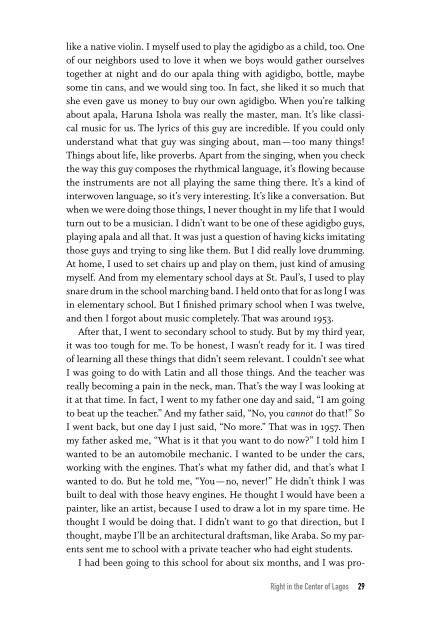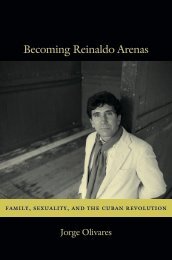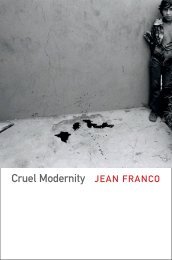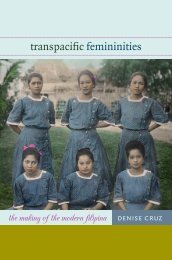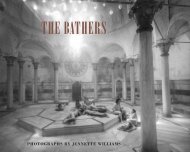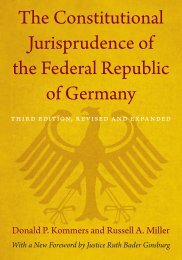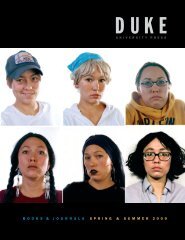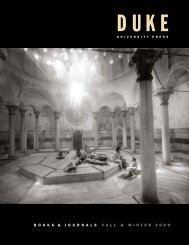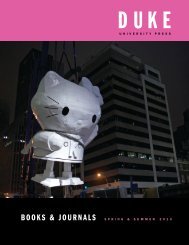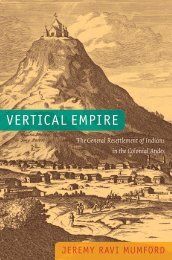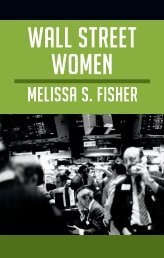MASTER DRUMMER OF AFROBEAT - Duke University Press
MASTER DRUMMER OF AFROBEAT - Duke University Press
MASTER DRUMMER OF AFROBEAT - Duke University Press
You also want an ePaper? Increase the reach of your titles
YUMPU automatically turns print PDFs into web optimized ePapers that Google loves.
like a native violin. I myself used to play the agidigbo as a child, too. One<br />
of our neighbors used to love it when we boys would gather ourselves<br />
together at night and do our apala thing with agidigbo, bottle, maybe<br />
some tin cans, and we would sing too. In fact, she liked it so much that<br />
she even gave us money to buy our own agidigbo. When you’re talking<br />
about apala, Haruna Ishola was really the master, man. It’s like classical<br />
music for us. The lyrics of this guy are incredible. If you could only<br />
understand what that guy was singing about, man—too many things!<br />
Things about life, like proverbs. Apart from the singing, when you check<br />
the way this guy composes the rhythmical language, it’s flowing because<br />
the instruments are not all playing the same thing there. It’s a kind of<br />
interwoven language, so it’s very interesting. It’s like a conversation. But<br />
when we were doing those things, I never thought in my life that I would<br />
turn out to be a musician. I didn’t want to be one of these agidigbo guys,<br />
playing apala and all that. It was just a question of having kicks imitating<br />
those guys and trying to sing like them. But I did really love drumming.<br />
At home, I used to set chairs up and play on them, just kind of amusing<br />
myself. And from my elementary school days at St. Paul’s, I used to play<br />
snare drum in the school marching band. I held onto that for as long I was<br />
in elementary school. But I finished primary school when I was twelve,<br />
and then I forgot about music completely. That was around 1953.<br />
After that, I went to secondary school to study. But by my third year,<br />
it was too tough for me. To be honest, I wasn’t ready for it. I was tired<br />
of learning all these things that didn’t seem relevant. I couldn’t see what<br />
I was going to do with Latin and all those things. And the teacher was<br />
really becoming a pain in the neck, man. That’s the way I was looking at<br />
it at that time. In fact, I went to my father one day and said, “I am going<br />
to beat up the teacher.” And my father said, “No, you cannot do that!” So<br />
I went back, but one day I just said, “No more.” That was in 1957. Then<br />
my father asked me, “What is it that you want to do now?” I told him I<br />
wanted to be an automobile mechanic. I wanted to be under the cars,<br />
working with the engines. That’s what my father did, and that’s what I<br />
wanted to do. But he told me, “You—no, never!” He didn’t think I was<br />
built to deal with those heavy engines. He thought I would have been a<br />
painter, like an artist, because I used to draw a lot in my spare time. He<br />
thought I would be doing that. I didn’t want to go that direction, but I<br />
thought, maybe I’ll be an architectural draftsman, like Araba. So my parents<br />
sent me to school with a private teacher who had eight students.<br />
I had been going to this school for about six months, and I was pro-<br />
Right in the Center of Lagos 29


